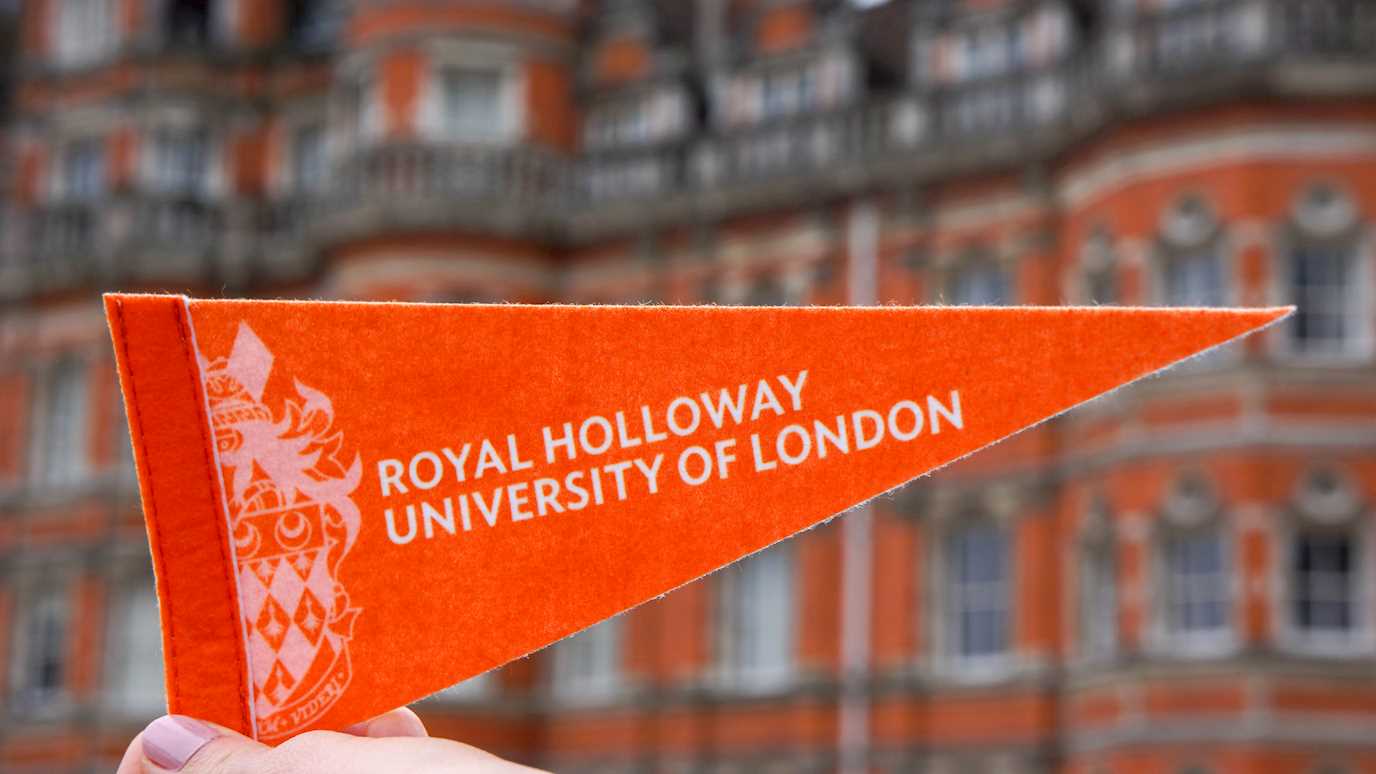Researchers affiliated with the Institute come from different disciplinary backgrounds.
Our interdisciplinary research group includes collaborators in Asia, the United States and Europe. Explore our collaborators' profiles below.
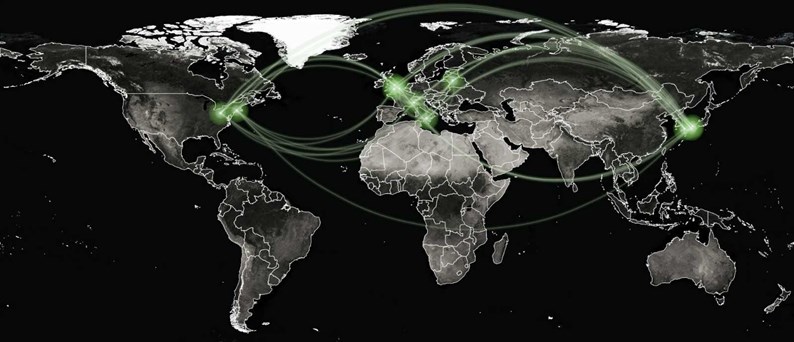
Director
Professor Giovanni A. Travaglino

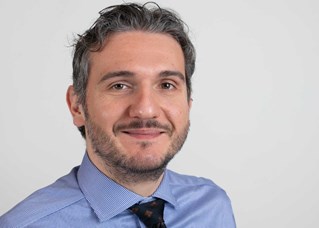
Giovanni Travaglino is Professor of Social Psychology & Criminology in the Department of Law & Criminology, Royal Holloway, University of London. He obtained his PhD in Social Psychology at the University of Kent. Giovanni has previously held faculty positions at the University of Kent (Social Psychology) and The Chinese University of Hong Kong (Applied Psychology). His research focuses on the nexus between culture, politics and crime. His work has been published in leading scientific journals, including the Journal of Experimental Social Psychology, the Journal of Personality and Social Psychology, and the European Review of Social Psychology. He founded and is editor of the scientific publication "Contention: The Multidisciplinary Journal of Social Protest". In 2021, Dr Travaglino was awarded a European Research Council’s StG Grant (fulfilled by the UKRI) to investigate the psychological dynamics of criminal governance across countries.
Deputy Director
Dr Chanki Moon


Dr Chanki Moon is a lecturer (Assistant Professor) in Psychology & Criminology in the Department of Law & Criminology, Royal Holloway, University of London. He previously worked as a lecturer, Research Associate and Teaching Fellow at Leeds Beckett University (UK), University of Kent (UK) and Chonnam National University (South Korea). Chanki’s research is in the area of social and cultural psychology and his primary research interests focus on how individuals’ values and norms as well as emotional, cognitive and behavioral outcomes associated with power and status in social interactions can be shaped by culture. His PhD in Social and Cultural Psychology was awarded by the University of Kent (UK), where he developed his research focusing on cultural differences in social hierarchies/power, incivility and norms.
Dr Moon’s work has been published in internationally leading journals, including European Journal of Social Psychology, Political Psychology, and International Journal of Conflict Management. His work has been internationally recognised and has been featured on reputable media outlets (BBC Worklife, Time). Dr Moon is also a current editorial board member of two leading scientific journals: British Journal of Social Psychology and International Journal of Conflict Management.
Postgraduate Students
Research Fellows
Dr Janina Beiser-McGrath
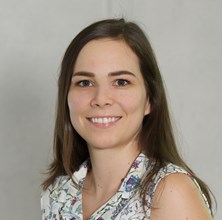
Dr Janina Beiser-McGrath is a Lecturer (Assistant Professor) in Politics and International Relations (Quantitative Methods) at Royal Holloway, University of London. She studies the role of ethnicity in politics, authoritarian politics, political violence and quantitative methods. Her research has been published in the British Journal of Political Science, Comparative Political Studies and Political Science Research and Methods, among others.
Dr Matt Clement

Matt has written, researched and participated in protests, campaigns and social movements. He is a Marxist critical criminologist, also influenced by the ideas of Elias. He has published on the links between austerity, criminalisation and protest in the UK in journals such as Race & Class, Human Figurations and Social Justice.
He has published the textbook A People’s History of Riots, Protest & the Law (2016) and recently edited No Justice, No Police? The politics of protest & social change to be published in Spring 2023 by Zero Press. State crimes, social control, populism and the exploitation of folk devils have also featured in publications such as Critical Criminology and the European Journal of Criminology.
Professor Oliver Heath
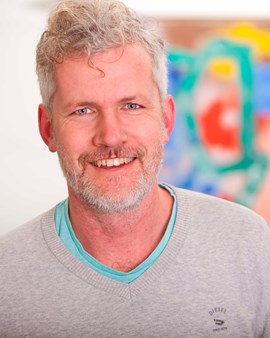
Oliver Heath is Professor of Politics and co-director of the Democracy and Elections Centre. He holds a BA (Hons) in Social Anthropology from the University of Sussex and an MA in Political Behavior from the University of Essex, where he also received his PhD. He joined the Department in 2008, having previously held a British Academy Postdoctoral Fellowship at the University of Essex and an ESRC Postdoctoral Fellowship at the LSE. He has also worked at the University of Strathclyde and held visiting positions at the Centre for the Study of Developing Societies (CSDS) in India, Universidad Simon Bolivar in Venezuela, and the Centre for the Study of Political Change (CiRCap) in Italy.
Oliver's main research interests include elections and voting behaviour, public opinion, and survey design and analysis. He has a particular interest in both UK elections and Indian elections. He is the author of Political Research: Methods and Practical Skills (with Sandra Halperin) and has published his work in the Journal of Politics, British Journal of Political Science, European Journal of Political Research, Electoral Studies, Political Behavior, and Political Studies among others. He has received funding for his research from the ESRC, British Academy, and Nuffield Foundation, and has written commissioned reports for the Home Office on voluntary participation, citizenship and ethnic diversity and for the Joseph Rowntree Foundation on Brexit and low-income voters.
Dr Leah Moyle
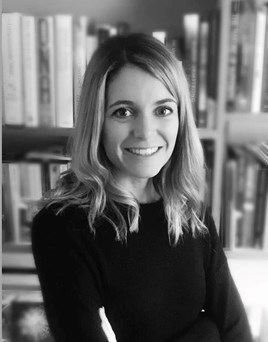
Dr Leah Moyle is a Senior Lecturer in Criminology and Sociology at Royal Holloway, University of London. Leah’s research interests focus principally on illicit drug supply, and she has published widely in this area with recent work spanning the policing of street-level drug markets, the evolution of ‘County Lines’ drug markets, the sentencing and punishment of low-level ‘drug dealers’, and the use of social media in recreational drug markets. Leah has gained demonstrable experience in undertaking commissioned research with local stakeholders and partners, including Drug and Alcohol Action Teams, Police and Youth Offending Teams.
From 2016 - 2018 Leah worked as a Research Fellow at the world-leading criminological Research Institute at Griffith University (Australia) and was co-author of the Australian Institute of Criminology (AIC) study ‘Sentencing for the social supply of illicit drugs in Australia’. Leah’s work is internationally recognised and has featured on BBC News, Le Monde, the Independent, and the Guardian. Her findings have informed policy reports by the Global Commission on Drug Policy (GCDP), the UK Government, the Advisory Council for Misuse of Drugs (ACMD), and Europol.
Dr Elizabeth Pearson
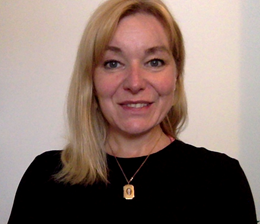

Dr Elizabeth Pearson is a Lecturer in Criminology with the Conflict, Violence and Terrorism Research Centre at Royal Holloway. Her research interests are in gender, extremism and counter-extremism.
Elizabeth is the lead author of the book Countering Violent Extremism: Making Gender Matter, co-authored with Emily Winterbotham of the Royal United Services Institute and Dr Katherine Brown. The book is based on research in 2015-6 looking at the gender dynamics of extremism and countering violent extremism, and in five countries (Canada, France, Germany, the Netherlands and the UK). Elizabeth's ESRC-funded PhD research at King's College London focused on masculinities in Islamist and radical right movements in the UK. She is interested in extremism online and off, and in 2015 conducted research on Islamic State supporters on Twitter on a Fellowship with VOX-Pol, the European Union Network of Excellence for the study of extremism online. Elizabeth has also written on gender and the West African jihadist group Boko Haram and worked with the European Union Technical Assistance to Nigeria's Evolving Security Challenges (EUTANS) in 2015.
Elizabeth worked as a radio journalist, mainly for the BBC, for some fifteen years prior to academia.
Ms Emese Szász
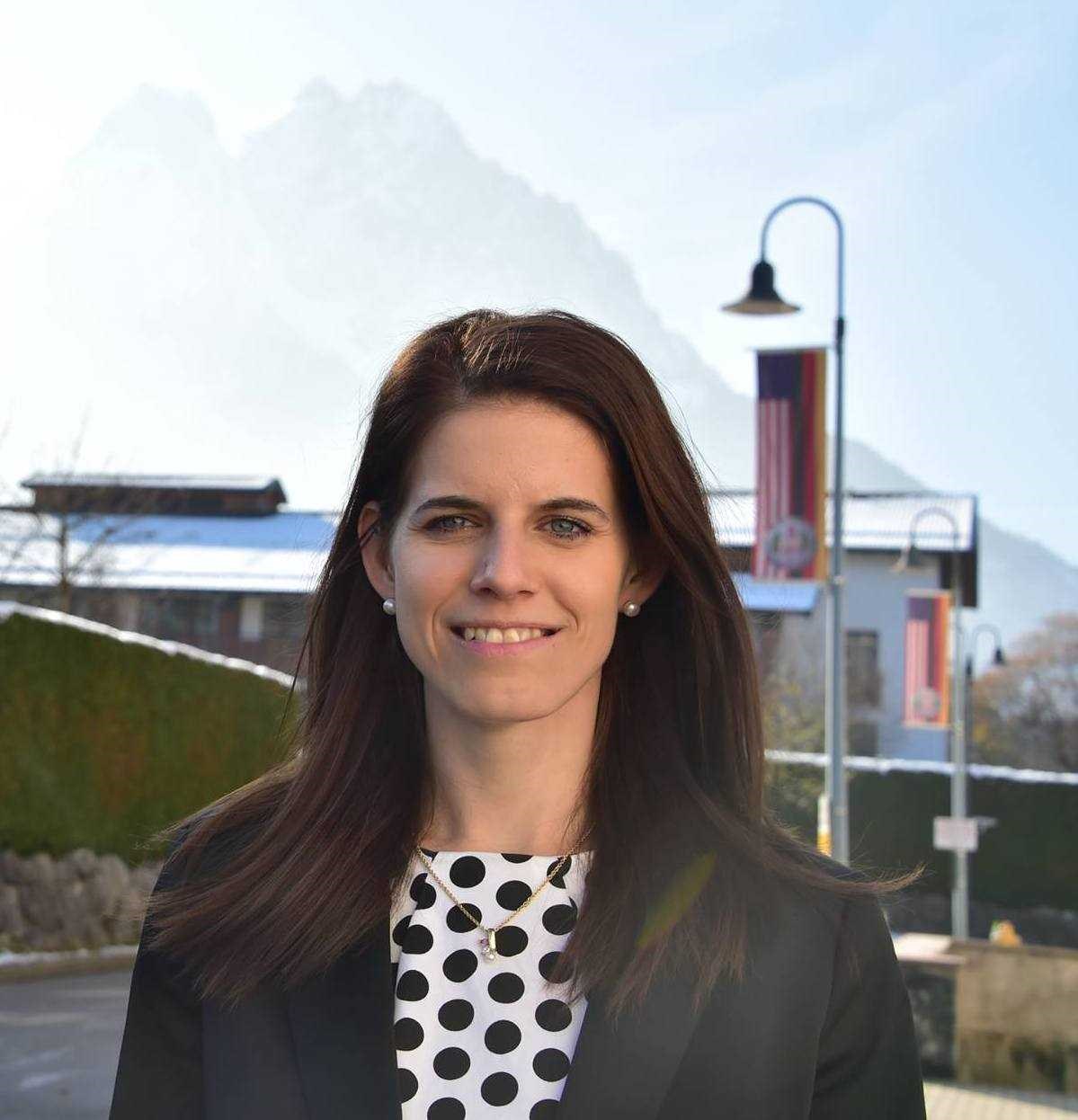
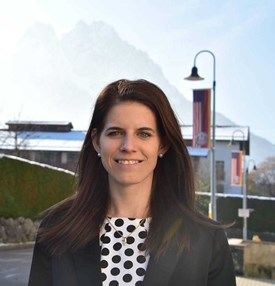
Emese is a final-year PhD candidate in Forensic Psychology at the Department of Law and Criminology, Royal Holloway University of London. She examines how the help-seeking behaviour of survivors of sex trafficking at NGOs might be facilitated. She applies quantitative and qualitative research approaches and has taught Research Methods and Data Analysis at the RHUL since 2020. Her background is in Clinical (Goethe Universität, Frankfurt, Germany) and Forensic Psychology (RHUL), as well as Applied Security Studies (G.C. Marshall Center, Garmisch-Partenkirchen, Germany).
Emese has a strong applied focus to her research and acquired field experience. She worked as an Assistant Psychologist with survivors of trafficking at the Helen Bamber Foundation in London between 2020 and 2022, where she provided pre-therapy support and prepared care plans. In 2018, she interned at the Willow International NGO in Uganda, where she developed a forensic investigative interview protocol for the police to acquire evidence from survivors of human trafficking efficiently and in a ‘victim-friendly’ way.
She is a research fellow of the Cambridge Centre for Applied Research in Human Trafficking (CCARHT) and a member of the Antislavery Early Research Association.
Professor Hanna Zagefka
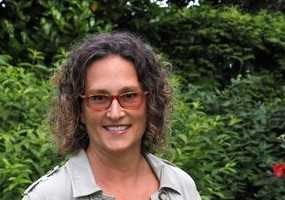
Professor Zagefka's interests are in social psychology, particularly intergroup relations, social identity (especially national or ethnic identity), acculturation, prejudice, and intergroup helping. Professor Zagefka studies situations where people’s group identities are important drivers of their thoughts or behaviours, both for the better (e.g. helping members of other groups) and for the worse (e.g. discriminating against others). For example, she has published on the perceived importance of genetic factors in defining groups, people’s emotional reactions to intergroup atrocities, and the relationship between national identification, intergroup contact, and prejudice.
From this broad intergroup perspective, Professor Zagefka specialise in two areas: Acculturation: What ideas do majority members have about the minority’s role in society, and what are the antecedents and consequences of these ideas? I explore this in a wide range of settings both within and outside Europe. Donations: Why do appeals following some humanitarian disasters trigger more generous donations than others? I study this topic in the context of large-scale humanitarian disasters, as well as other types of donation appeals.
External Research Fellows
Dr Pascal Burgmer
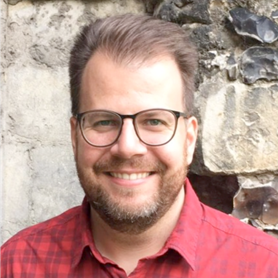
Dr Pascal Burgmer is an Assistant Professor (University Lecturer) in Psychology at the University of Southampton. He has previously held a faculty position at the University of Kent in Social and Organisational Psychology and was a visiting research fellow at the University of Iowa, USA. Dr Burgmer obtained his PhD in Social Psychology at the University of Cologne, Germany, where he also worked as a postdoctoral research fellow in an interdisciplinary research unit on the topic of trust. His research focuses on lay beliefs about the mind (e.g., belief in mind-body dualism), mind perception, social cognition, interpersonal trust, and moral judgment. His work draws on theory and methodology from various disciplines such as social, moral, and personality psychology, experimental philosophy, and behavioural economics. Dr Burgmer is a member of the scientific network Understanding Others (https://www.understandingothers.net/), and his work has been published in leading scientific journals in social and experimental psychology such as Psychological Science, Journal of Personality and Social Psychology, and Journal of Experimental Psychology: General.
Professor Hoon-Seok Choi

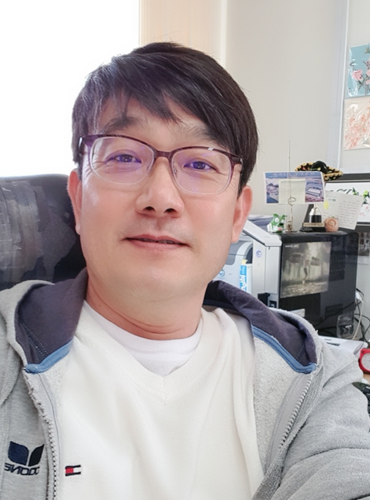
Hoon-Seok Choi (PhD, University of Pittsburgh) is a Professor of Psychology at Sungkyunkwan University, Seoul, Korea. Hoon-Seok studies group processes and intergroup relations and has published a number of influential articles in international renowned journals. He has been developing a theoretical model that specifies the role of individuals' cultural orientation (i.e., individualistic vs. collectivistic) in cognition and behavior within and between groups. In particular, the model examines how collectivistic values and independence in self-views (i.e., collectivistic independence) jointly promote behaviors conducive to collective flourishing. These behaviors are studied under the rubric of three key topics, including harmony (和), loyalty (忠), and righteousness (義) within and between groups. Hoon-Seok is the recipient of the Distinguished Research Award (by Korean Psychological Association, 2021), the SKKU Fellowship (by Sungkyunkwan University, 2021), and the Humanities & Social Sciences Distinguished Scholar (by the Ministry of Education, Korea, 2022). He has also served a number of academic organizations, including the Asian Association of Social Psychology (President), Korean Social & Personality Psychological Association (President), Korean Psychological Association (Vice-President), and Journal of Social Psychology(Associate Editor), and Korean Journal of Social & Personality Psychology (Editor).
Dr Marco Ciziceno

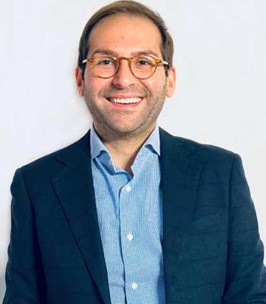
Marco Ciziceno is Assistant Professor in Sociology at the Department of Economics, Business, and Statistics at the University of Palermo, Italy. He was awarded his Ph.D. in 2018, defending a thesis on the non-economic factors driving peoples' subjective well-being. His interdisciplinary research interests include individuals’ moral values, ethical standards, political orientations, and sociological theories. His recent work (in collaboration with Professor Giovanni A. Travaglino) focuses on the effects of power distance on institutional trust and life satisfaction across countries. He is a member of the Italian Sociological Association (AIS), and actively collaborates with Italian sociological research groups on digital humanities and youth transition to adulthood.
Dr Cristina d'Aniello

Dr Cristina d’Aniello is a Lecturer at the School of Criminology, University of Leicester. Dr d’Aniello obtained her first degree in Law at the Seconda Università degli Studi di Napoli, Italy. After passing the bar examination, she worked as a Lawyer in Italy. She then moved to the UK in 2012, where she completed an MSc in Clinical Criminology followed by a PhD in Criminology at the University of Leicester. From March 2019 until July 2022, Dr d’Aniello worked for the Department of Social Sciences at UWE Bristol as a Lecturer in Criminology. Her primary research interests include Miscarriages of Justice, Jury Decision-Making, Psychology in the Courtroom, Deception Detection in Forensic Contexts, and Organised Crime. Her research focuses on real-world issues and adopts transnational, interdisciplinary and comparative approaches to contribute to the improvement and reform of the criminal justice system. Dr d’Aniello is Associate Editor of Contention: The Multidisciplinary Journal of Social Protest and an ad-hoc reviewer for a number of academic journals in the field of Criminology.
Dr Isabella Giammusso

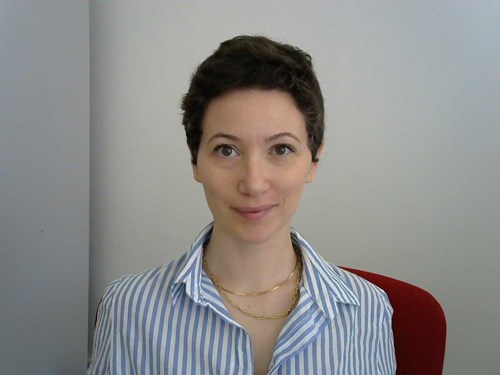
Isabella Giammusso is a Research Fellow in Social Psychology at the Department of Psychology, Educational Science and Human Movement at the University of Palermo (Italy) where she obtained her PhD in Social and Psychological Sciences in 2017. Dr Giammusso is a member of the Italian Association of Psychology (AIP), the Italian Reproducibility Network (ITRN), and the Psychological Science Accelerator (PSA).
She has participated in projects promoting cooperation across European countries and institutions working on the evaluation of interventions’ efficacy. Her research interests include attitudes and attitude change, stereotypes, social identity, and cross-cultural studies
Dr Hirotaka Imada

Hiro Imada (Research Fellow, Kochi University of Technology) conducts research on the role of reputation in social behaviour. More specifically, his research interests include reputation-based cooperation, gossip, power, and intergroup behaviour (e.g., intergroup cooperation and conflict). In his PhD thesis, he investigated how power asymmetries shape within-group and intergroup cooperation via reputational concerns. His work is grounded in social and evolutionary psychological perspectives. He employs interdisciplinary approaches involving economic games and surveys.
Professor John Levine

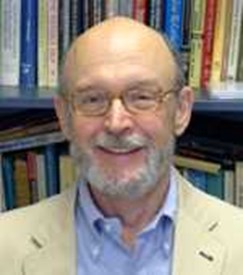
John M. Levine (PhD, University of Wisconsin) is Professor Emeritus of Psychology and Senior Scientist at the Learning Research and Development Center at the University of Pittsburgh. He has published widely on various facets of group behavior, including conformity and reaction to deviance, group socialization, and loyalty/disloyalty. He served as Editor of the Journal of Experimental Social Psychology and Chair of the Society of Experimental Social Psychology. Dr. Levine is a Fellow of the Society of Experimental Social Psychology, the Society for Personality and Social Psychology, and the Association for Psychological Science. He was co-recipient of the McGrath Award for Lifetime Achievement in the Study of Groups from the Interdisciplinary Network for Group Research. He has been a Visiting Professor at the University of Rome and the University of Lausanne, as well as an Honorary Professor of Psychology at the University of Kent. Dr. Levine received an Honorary Doctorate in Social Psychology from the University of Lausanne.
Dr Miki Ozeki

Dr Miki Ozeki is an associate professor at the Faculty of Humanities and Social Sciences (Economics), Okayama University. Her main research area is group dynamics, especially group identity and group norms. She has also published research in the field of industrial/organizational psychology focusing on employees' innovation orientation, the mental health of office workers, and related topics. In her research, she uses a variety of research and statistical techniques, applying quantitative and qualitative analyses, multilevel methods (HLM and Ml-SEM), and M-GTA.
Dr Ozeki has been a member of a wide range of research projects concerning adolescents' antisocial behaviour, disaster, and the use of art (music, dance). In this latter area, her main interest has been comparing the effects of parents', neighbourhoods', and school's legal education on adolescents' behaviour.
Mr Paolo Palazzo
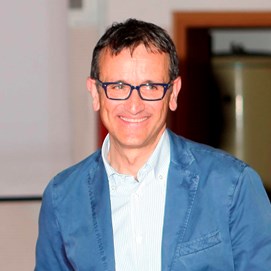
Paolo Palazzo is the Deputy Chief of the Department of Judicial Police at the Public Prosecutor's Office in Turin (Italy). He is responsible for the investigations of the Criminal Assets Recovering Department, focusing on Criminal Organizations (mafias and others). He is also responsible for investigations of crimes committed by magistrates. In 2013-14, he was involved in an operation aimed at apprehending fugitives in collaboration with Interpol and Europol agents. Over his career, he has held positions as Head of Department (Varese, 2008-09) and Company Commander (Milan, 2004-08 and Lecce, 2001-04). Between 1998 and 2001 he was involved in investigations on Cosa Nostra and held the position of Chief of a police department in Palermo (Sicily, Italy), where he supervised a team of 30 people. He has collaborated with several other international bodies, including the F.B.I. (Federal bureau of investigation), D.E.A. (drug enforcement administration), R.C.M.P. (Royal Canadian mounted police), B.K.A. (Bundeskiriminalamant – Germany), Interpol and Europol. Together with Ferdinando Brizzi and Alberto Perduca, he is the author of a book on "preventative measures", "Le nuove misure di prevenzione personali e patrimoniali dopo il codice antimafia" (Edited by Maggioli, 2012).
Dr Fabio Indìo Massimo Poppi


Dr. Fabio Indìo Massimo Poppi (BSC and MSC, Social Psychology, University of Trieste; MA, Sociocultural Linguistics, Goldsmiths College, University of London; PhD, Language and Communication Studies, UEA) is Chief Research Fellow at Vilnius Tech (Lithuania) and Research Associate at the University of Łódź (Poland).
With an interdisciplinary background in social psychology, (critical) discourse studies and Italian culture, he is currently involved in a project that examines the ideological and discursive dimensions of organized crime and in an investigation of the interface between humour and aggressivity/ impoliteness in social media communication. At the same time, he works on the cultural dimensions of sexuality, crime, and deviant behaviour, often using a discourse analytical, narrative criminology, and interactional fantasizing approach.
Among the international journals where he has published are Information, Communication & Society, Journal of Pragmatics, Discourse, Context & Media, Journal of Language Aggression and Conflict, European Journal of Criminology, Deviant Behavior and Discourse & Communication.
For further information, please visit www.fabioimpoppi.com (website), @fabioimpoppi (Twitter) or on Researchgate.
Project Advisory Board: Secret Power
Secret Power
Learn more about the project
The project "Secret Power" was awarded a 2021 European Research Council StG grant (fulfilled by UKRI) to investigate the legitimization of criminal governance across countries. The project will use a combination of quantitative methodologies to address the question of how criminal groups may express political power and control territories in Italy, the UK and Japan.
For more information about the project, visit this link.
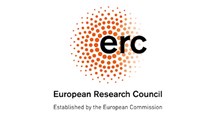

Dr Alberto Mirisola
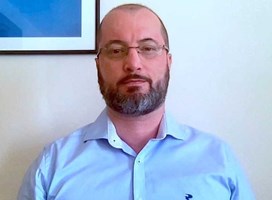
Alberto Mirisola is an Associate Professor of Social Psychology at the University of Palermo in Italy. His research interests lie in political ideologies, social identity, intergroup contact, stereotypes, and attitudes. He is a member of the Italian Association of Psychology (AIP), the Society for Personality and Social Psychology (SPSP), the Psychological Science Accelerator (PSA), and the Italian Reproducibility Network (ITRN). Currently, he is the Principal Investigator of the Leading Organization for the intellectual output “Evaluation of knowledge, attitude and perception in the field of healthy cooking” of the Erasmus+ KA2 - Cooperation for innovation and the exchange of good practices. His recent research work focuses on ideologies and worldviews as external sources of compensatory control, the cognitive representations of social identity, and the Intracultural Appropriation Theory (ICAT). In addition to his role on the advisory board of the project "Secret Power", Alberto Mirisola is also External Research Fellow at the Institute, where he co-chairs the international seminar series and engages in collaborative projects with Prof. Travaglino.
Dr Kengo Nawata
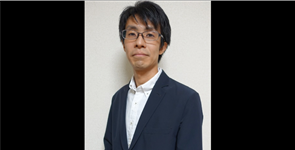
Kengo Nawata is an Associate Professor at Fukuoka University, Fukuoka, Japan. He received his Ph.D. in 2011 from the Graduate School of Human-Environment Studies, Kyushu University. His research focuses on intra-group processes of intergroup conflicts and group violence, particularly group norms, organizational climate, and reputation. He can be contacted at nawata@fukuoka-u.ac.jp
Professor Patricia M. Rodriguez Mosquera
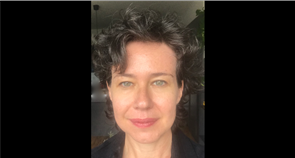
Patricia M. Rodriguez Mosquera obtained her Ph.D. at the University of Amsterdam, the Netherlands. She has been on the faculty of the University of Amsterdam and Brunel University, London (U.K.) and is currently Professor of Psychology at Wesleyan University (U.S.) where she directs the Culture and Emotion Lab. Dr. Rodriguez Mosquera is a social scientist who studies how people in different cultures emotionally experience their social image, with a special focus on honor cultures and under-studied populations in psychology (e.g., Turkish, Moroccan, Bangladeshi cultural minorities in Europe; Muslim minorities in the U.S. and Europe). Using a multi-method approach (e.g., experiments, narratives), her research examines a wide range of emotions experienced about social image (e.g., pride, happiness, fear, anger, sadness, shame) at different levels of analysis (intrapersonal, interpersonal, intergroup). Dr. Rodriguez Mosquera’s research has been published in social psychology (e.g., Personality and Social Psychology Bulletin, Journal of Personality and Social Psychology), cross-cultural psychology (e.g., Journal of Cross-Cultural Psychology), and emotion (e.g., Cognition & Emotion, Emotion) journals. She was lead editor of the special issue ‘The Centrality of Social Image in Social Psychology’ for the European Journal of Social Psychology and sole editor of the special issue ‘In the Name of Honor: On Virtue, Reputation, and Violence’ for the journal Group Processes and Intergroup Relations. Dr. Rodriguez Mosquera was Associate Editor of the European Journal of Social Psychology and Frontiers in Psychology: Cultural Psychology. For an overview of her research see this publication.
Professor Alex Stevens

Alex Stevens is Professor in Criminal Justice at the University of Kent in the UK. He studies the overlaps between drugs, crime and public health, including alternatives to criminalisation. He has a specific interest in the politics of expertise and policy making. He was member of the UK Advisory Council on the Misuse of Drugs (2014 – 2019). He is also a former President of the International Society for the Study of Drug Policy (2015 – 2019). He is currently a member of the scientific committee of Drug Science and a trustee of Harm Reduction International. He served as special adviser to the 2019 inquiry of the House of Commons Health and Social Care Committee on drug policy. He is now writing a new book on Drug Policy Constellations, which explain how power and moralities influence drug policy making.
Professor Cliff Stott
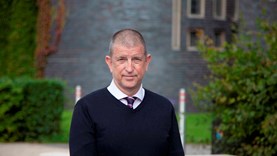
Clifford Stott is Professor of Social Psychology at Keele University in Staffordshire and Director of the Keele Policing Academic Collaboration (KPAC) and Dean for Research in the Faculty of Natural Sciences. His work revolves around crowd psychology, collective conflict, policing and civil contingency responses in mass emergencies. He has an interest in theoretical models of social identity, intergroup interaction, and police legitimacy. Reflecting the contributions of his work he was awarded the 2014 First Prize for ‘Outstanding Impact on Public Policy’ by the Economic and Social Research Council (ESRC). In 2015 the ESRC also acknowledged his work as one of its top 50 ‘Landmark Research’ achievements of its 50-year history. During the Covid-19 pandemic, he was a participant in the U.K. Government’s Scientific Advisory Group in Emergencies (SAGE) Behavioural Science sub-committee (SPI-B) and co-Chair of the SAGE Security and Policing sub-group. In 2021 he was awarded an MBE in the Queen’s Birthday Honours for his contributions to crowd psychology and the Covid-19 response. He currently sits on the UK’s National Police Chief Council’s Scientific Advisory Council.
Dr Harmonie Toros
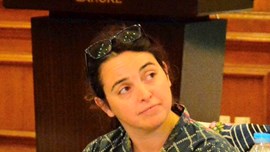
Harmonie Toros is Reader in International Conflict Analysis at the University of Kent (UK). Her research lies at the crossroad between conflict transformation, peace studies, and terrorism studies, developing a critical theory-based approach to terrorism and examining the transformation of conflicts marked by terrorist violence. She has carried out field research in Europe, the Middle East, South East Asia, and Africa. She has advised numerous governments, international organizations (NATO and the UN in particular) and international non-governmental organizations on non-violent responses to terrorism, particularly negotiations with groups who use terrorist violence. She trained as a historian before working in international journalism for 8 years. She returned to academia in 2003. She has recently been named deputy director of the Institute of Cyber Security for Society (iCSS) at the University of Kent.













